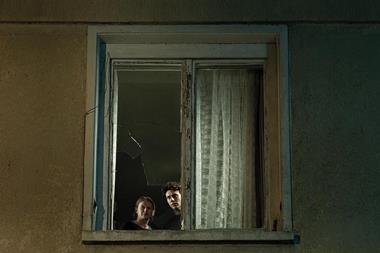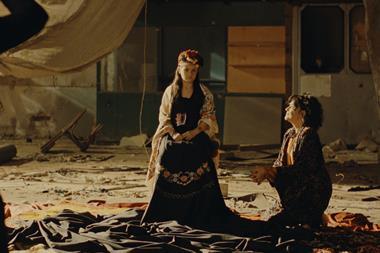Spain is enjoying a boom in film and TV production as streaming platforms work to meet the demands of growing audiences but are generating fresh challenges for producers
Speaking during the latest ScreenDaily Talks webinar on Thursday September 9, award-winning producer María Zamora said the opportunities created by streamers in Spain were significant but were restrictive when it came to rights ownership.
Watch the full session above.
“The platforms have been very good for producers, in terms of work… but it’s a tricky opportunity for an independent producer because, of course, they keep all the copyright,” said Zamora, a producer at Spanish production and distribution company Avalon.
“This is quite tricky because producers turn into some sort of work-for-hire person. Those who try to be creative producers want to give directors the possibility to feel free about the content they produce but with platforms this is not something that is always a possibility.
“More and more, platforms in France and the United States are giving authors the opportunity to do whatever they want. But in Spain, so far, it’s been more like a tailor-made thing, in terms of what their audiences are looking for.”
Zamora produced Carla Simon’s Berlinale award-winner Summer 1993 and her upcoming second feature Alcarras, as well as Clara Roquet’s Cannes Critics’ Week title Libertad and is in pre-production on Matria, the debut feature of Álvaro Gago – one of Screen’s inaugural Spain Stars of Tomorrow.
“I’m really happy to be working with platforms,” added Zamora, who said she was working on a series and feature for a streamer. “But what I found is that it’s very difficult for platforms to come on board with new talent. It’s more for directors and creators who already have a career and that makes platforms feel comfortable enough to say, let’s invest all this money.”
Also on the panel was Maialen Beloki, deputy director of the San Sebastián International Film Festival, who shared their approach to selecting streaming titles.
“The issue arose where we had to decide whether we were going to select films that were produced by platforms or not,” recalled Beloki. “Our mission is to help promote films… and we felt like we couldn’t close the gate to the platform produced films. We still feel there’s room, in terms of selection for the film festival, for traditional conventional productions and new platform productions.
“The issue of the survival of the cinema theatres, they will have to find a way to live with these different windows. It’s something that we are still living, and we still don’t know where we are going to be in some years - more with the pandemic because it’s been changed in that sense too.”
Marielle Membreno, development and acquisitions executive at UK-based Protagonist Pictures, praised streamers for backing productions but highlighted the ongoing opportunities in the independent space.
“In terms of talent, what the streamers are able to do in terms of allowing a platform and financing for new voices is really wonderful,” she said. “But I’d like to remind filmmakers, there are still homes in which you can find to put together your project, the independent route.”
Protagonist is handling sales rights to The MediaPro Studio’s Venice and San Sebastian title Official Competition, starring Penélope Cruz and Antonio Banderas.
The panel was sponsored by Spanish SVoD platform Filmin and the Atlantida Mallorca Film Fest and was supported by the Spanish Film Institute (ICAA).















![[L-R]: Amanda Villavieja, Laia Casanovas, Yasmina Praderas](https://d1nslcd7m2225b.cloudfront.net/Pictures/274x183/6/4/1/1471641_pxl_20251224_103354743_618426_crop.jpg)














![[L-R]: Amanda Villavieja, Laia Casanovas, Yasmina Praderas](https://d1nslcd7m2225b.cloudfront.net/Pictures/100x67/6/4/1/1471641_pxl_20251224_103354743_618426_crop.jpg)





No comments yet